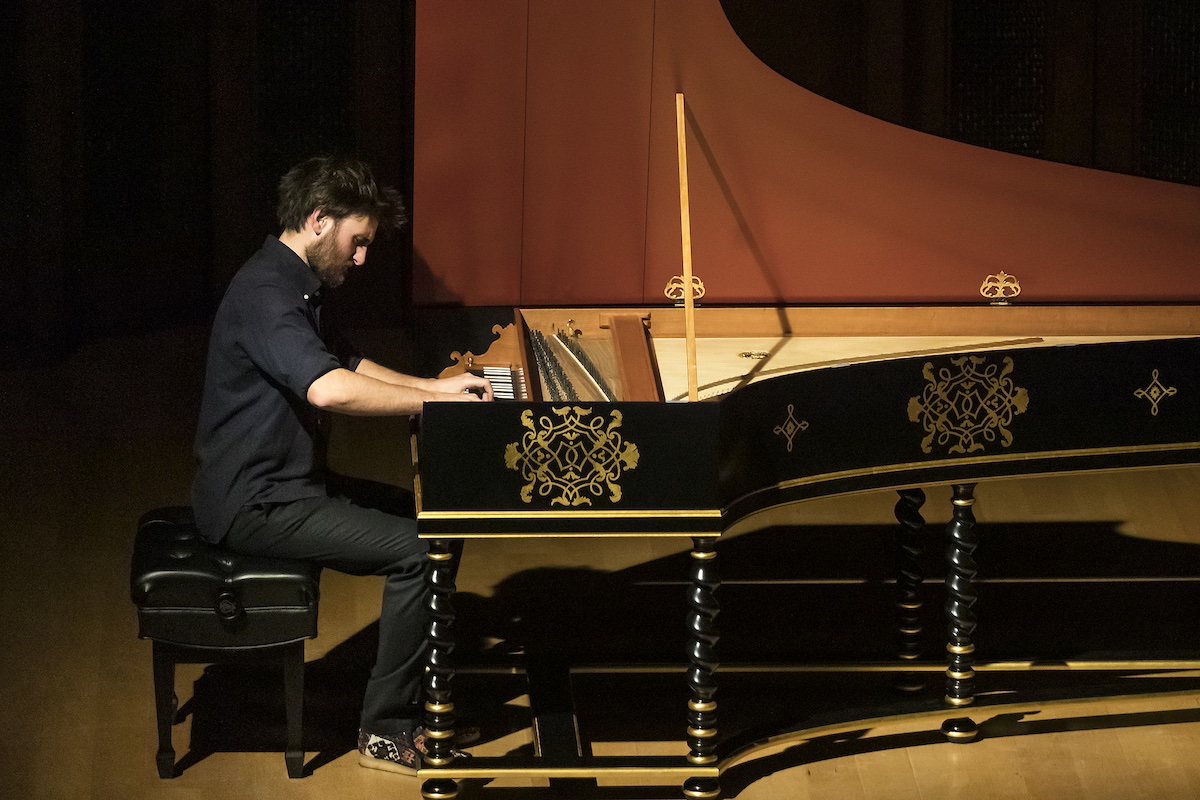Rondeau Deftly Channels Bach at Hahn Hall
Harpsichordist Jean Rondeau’s Version of Bach’s “Goldberg Variations” Ushered Uncommon Profundity into Hahn Hall

J.S. Bach’s masterful Goldberg Variations has arrived on public ears mostly through a side door of performances on grand piano, nonexistent in Bach’s day. We think naturally of Glenn Gould’s eccentric genius as interpreter, and the Gould-ized piano entity extends through potent versions by András Schiff, Murray Perahia and others.
To savor the original harpsichord version, as practiced by one of the world’s finest and most Goldberg-obsessed young harpsichordists, made for one of the concert highlights of the year, when Frenchman Jean Rondeau held forth at Hahn Hall stage on November 4 (hosted by UCSB Arts & Lectures). Bach would no doubt approve.
Goldbergs, we thought we knew thee. Rondeau, apart from emphasizing the authenticity of Bach’s original instrument and the score’s intentions, takes the piece as written, with repeats and pauses pushing the length to around 105 minutes. But those are 105 captivating, soothing, poignant, contrapuntal, tipsy (in the “drinking song” “Variation 30/Quodlibet”), and intellectually engaging minutes, always best appreciated as a whole. The practice of classical radio or other sources taking its parts out of context — especially the framing device of the “Aria” or the sadly rapturous variation 25 — feels somehow morally and musically suspect.
As heard at Hahn Hall, Rondeau decidedly respects the architecture and “variational” aspect of its creation. Whereas pianists rely on the degrees of dynamic nuance, sustain, and other qualities available to the instrument, Rondeau embraces the particular character of the harpsichord, with an exacting, poetic use of phrasing and the quicksilver rush of precise fast passages. He coaxed a distinctive type of sorrowful eloquence and contrary motion of lines in the famed “Variation No. 25” and eased into the more joyful flow of the variations leading back to the satisfying recapitulation of the “Aria,” with an extra repeat for good and score-faithful measure.
Coincidentally, Rondeau’s authentic deep dive into the Goldbergs came on the heels of another sublime performance of an extended solo keyboard work in Hahn Hall’s kindly acoustic, Conor Hanick’s reading of German composer Hans Otte’s 12-part 1982 opus The Book of Sounds, a week-and-change earlier. As different as these works may be, in both cases, the power of one performer — emboldened by an insightful love of a visionary musical piece/world — held us in thrall and has clung to the memory of profound musical evenings in 2022. File both under near-religious concert experiences in the 805.
Support the Santa Barbara Independent through a long-term or a single contribution.



